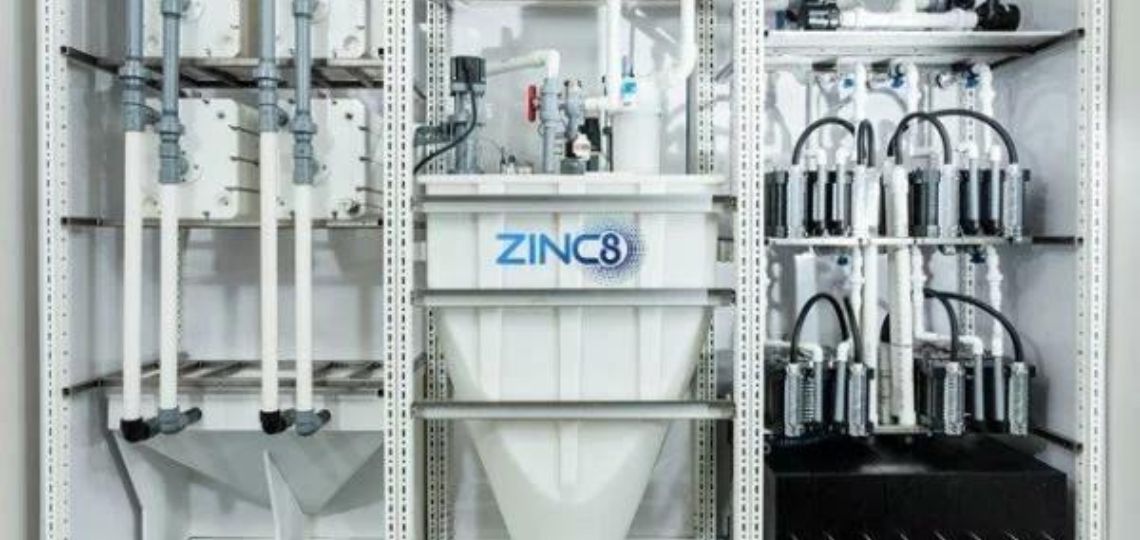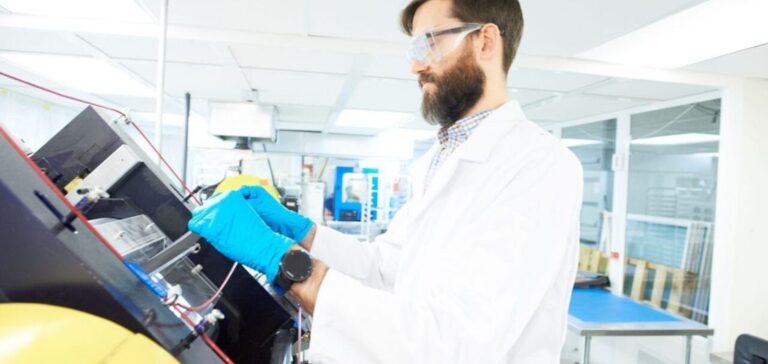While zinc-based batteries were limited to tiny hearing aids until about two years ago, engineers have now discovered how to make them rechargeable on a commercial scale. Since then, companies like Zinc8 have targeted their use for utilities, where they can store energy for an entire day and use it at night. Discover this new form of energy storage.
The Zinc8 solution
Zinc8 Energy Solutions has developed an innovative battery technology that uses zinc and air as fuel. In January, Zinc8 signed a three-year contract with the New York State Power Authority to develop a demonstration project that can produce backup power for a municipal or campus building for 8 hours, at a cost of around $250 per kilowatt-hour, explains Bloomberg. But there are markets that zinc-based batteries still can’t penetrate: for example, they still can’t replenish fast enough to be used in the electric vehicle market.
The Vancouver-based company is in the process of finding an appropriately sized site for the project, most likely in Western New York, Zinc8 Energy CEO Mr. MacDonald told Bloomberg. Once this is done, the system could be operational by 2022, he said.
Bloomberg reveals that the utility has set a goal of 3 gigawatts of energy storage statewide by 2030 to support Cuomo’s Green New Deal. The company’s objective, according to Mr. MacDonald: “To carry out tests in different scenarios where we can effectively add our batteries” to different types of network.
How the Zinc8 battery works
In an interview with The Energy Bit, MacDonald explains how the Zinc8 battery works:
“Zinc 8 works with the reaction of zinc and oxygen in a reversible process: electricity from the grid or a renewable source is used to generate zinc particles in the zinc regenerator. Oxygen is released into the atmosphere as a by-product of this process. The zinc particles are transported to the storage tank and held in a potassium hydroxide (KOH) electrolyte until they are required. Whenever energy is required, the stored zinc particles are transported to the power plant, where they are recombined with oxygen to produce electricity. The dissolved zinc oxide (ZnO) by-product is returned to the storage tank in the form of potassium zincate for subsequent regeneration.”

The Zinc8 battery advantage
Finally, one of Zinc8’s strengths is its relatively low cost compared with long-life lithium-ion batteries. Indeed, Recharge News tells us that the investment cost of an eight-hour Zinc8 storage system is around $250/kWh, falling to $100/kWh for a 32-hour system and $60/kWh for 100 hours. Lithium-ion projects, on the other hand, cost around $300/kWh for anything over eight hours.
“Our market is eight hours of storage and up,” MacDonald tells Recharge News. “And the reason is that as you increase your storage capacity, the overall cost of the system continues to fall very significantly.”
Zinc8’s strength is its LevelizedCost of Storage (LCOS), i.e. the cost of storing each MWh of energy over the lifetime of a project, taking all investments into account. In this category, zinc-air blows away lithium-ion for storage capacities in excess of eight hours. This is because the LCOS of lithium systems doubles for every ten hours of storage capacity added, compared with around every 70 hours for zinc-air.
This means that a ten-hour zinc-air storage system would have a LCOS of around $100/MWh, compared with $125/MWh for lithium-ion. But a 72-hour zinc-air system would have a LCOS of around $180/MWh, compared with over $600/MWh for lithium, reports Recharge News.
What’s more, the cost of zinc-air batteries should drop significantly as manufacturing speeds up.





















